Where Inspiration Meets Impact
Florida International University has delivered clean water, sanitation and hygiene solutions to countries throughout the world while also conducting research to protect water quality and water security. Our researchers are working across all targets set by the United Nations for Sustainable Development Goal 6, helping to ensure sustainable access to CLEAN WATER AND SANITATION.
Clean Water and Sanitation
FIU is working across all targets set by the United Nations General Assembly in Sustainable Development Goal 6 to deliver solutions for clean water, sanitation and hygiene for people all across the world.
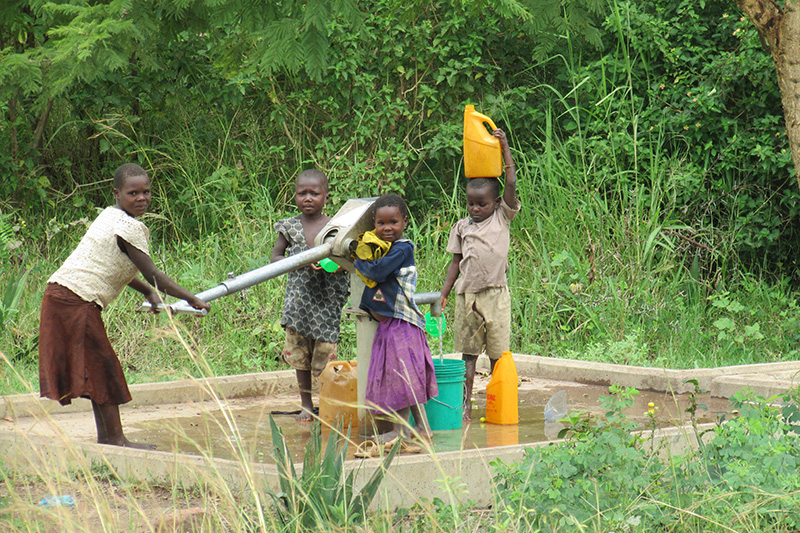
6.1 Ensuring access to drinking water
FIU has delivered clean water solutions to places throughout the world including Sub-Saharan Africa, South Asia, Latin America, and the Caucasus through initiatives funded by USAID. Our International Water Programs provide water management services to people and ecosystems through infrastructure improvements, education, integrated water management policies and research. Find out more on FIU's efforts to ensure access to drinking water.
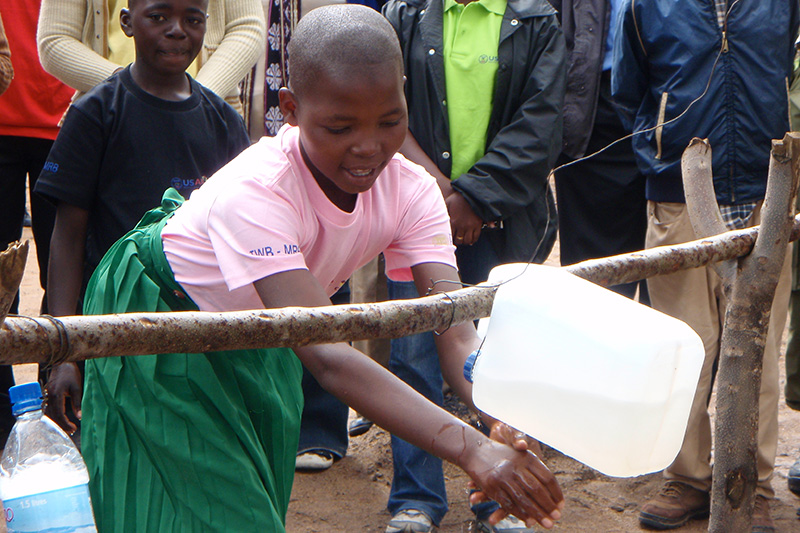
6.2 Improving sanitation and hygiene
FIU has delivered sanitation and hygiene solutions to countries throughout the world including Ghana, Mali, Niger, Rwanda, Tanzania, Kenya, Burkina Faso and Mozambique through initiatives supported by USAID. These efforts included a particular focus on gender equality and the responsibilities women in developing countries often shoulder, including promoting healthy hygiene practices within their families. Find out more on FIU's efforts to improve sanitation and hygiene.
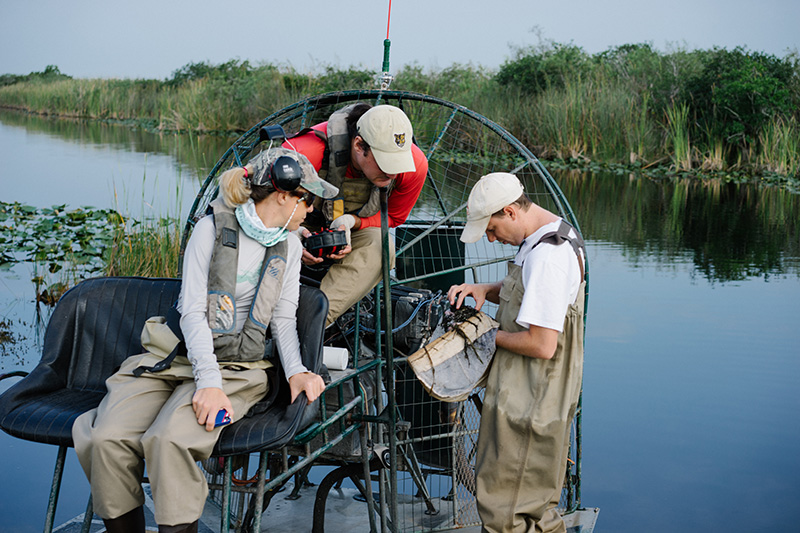
6.3 Protecting water quality
FIU scientists, through research and action, are preventing and reducing water pollution of all kinds including nutrient, plastics and microplastics, PFAS forever chemicals, oil and industrial contaminants, pharmaceuticals, and other debris. With a campus on Biscayne Bay and one on the edge of the Florida Everglades, protecting and preserving water quality is a way of life at FIU. Find out more on FIU's effort to protect water quality.
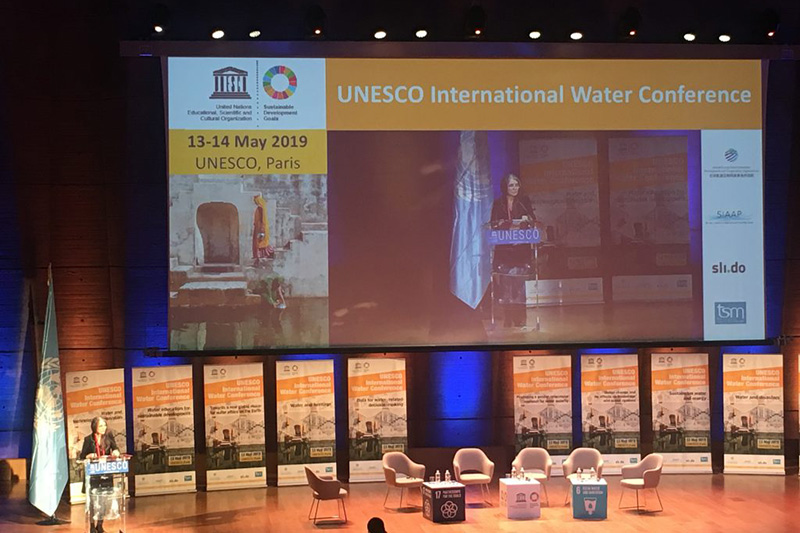
6.4 Improving water security
The UNESCO Chair on Sustainable Water Security in FIU’s Institute of Environment is charged with bringing together research and education to address regional, national and global water security issues, through innovative interdisciplinary research and partnerships for sustainability. Find out more on FIU's efforts to improve water security.
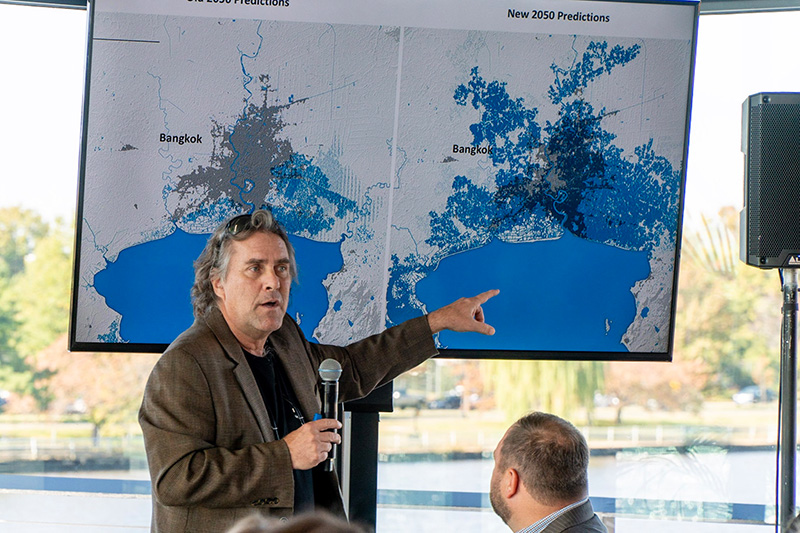
6.5 Implement integrated water resources management
FIU has delivered clean water, sanitation and hygiene solutions to countries throughout the world for more than a decade. FIU has focused on low-cost solutions, community engagement and government collaborations to help improve water management practices along with healthier and more sustainable communities. Find out more on FIU's efforts to implement integrated water resources management.
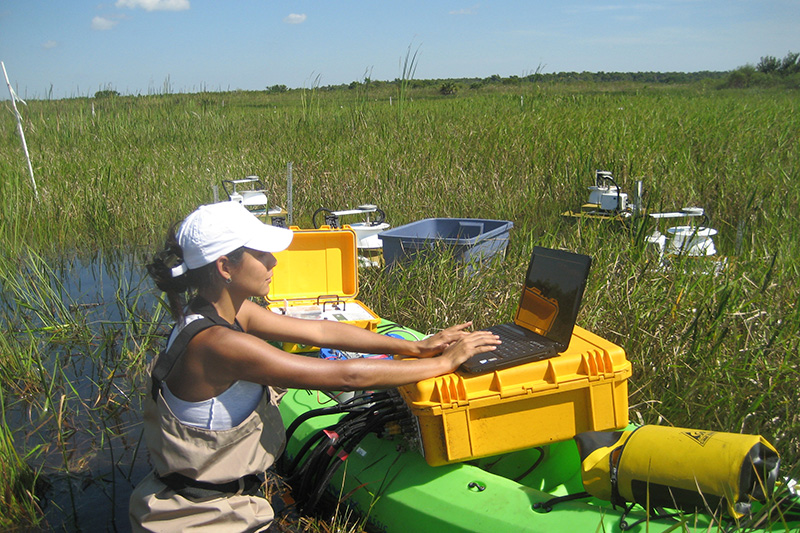
6.6 Protect and restore ecosystems
In collaboration with local and international partners, FIU research has led to expanded protections for endangered species and adaptive management of freshwater, coastal and marine resources. Find out more on FIU's efforts to protect and restore ecosystems.
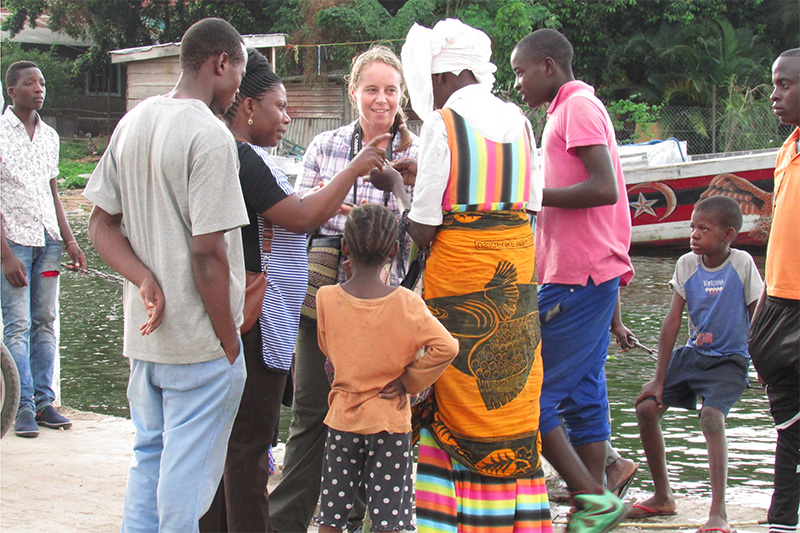
6.a-b Supporting communities
FIU is more than a top research institution. Our researchers are committed to putting their work into action. The International Water Programs in the Institute of Environment are focused on improving the lives of people in developing countries, empowering communities and protecting water resources for all. Find out more on FIU's efforts to support communities.
Target 6.1 Ensuring access to drinking water
By 2023, achieve universal and equitable access to safe and affordable drinking water for all
- South Florida Contaminant Assessment & Risk Evaluation
The South Florida Contaminant Assessment & Risk Evaluation project is led by FIU researchers and is designed to improve environmental data in areas important to ENP, BNP and BCNP with a monitoring program for pesticides, metals, and contaminants of emerging concern; 2. Identify chemicals and metals of potential ecological concern and assess the ecological risk associated with exposure to existing levels of pollution. It is the most comprehensive analytical chemistry monitoring and ecological risk assessment conducted in South Florida. The analytical components of the project included 50 stations which were used to sample and analyze water, sediment, and biota tissue from ENP, BNP, and BCNP for chemicals of potential ecological concern and 20 common emerging contaminants (pharmaceutical and personal care products) including human hormones. One of the most important results of the project is that among the large number of contaminants measured (organic and inorganic) there were only a few compounds that represented immediate potential risks, and these were mostly limited to border regions adjacent to contamination sources.
- International Water Programs
FIU has delivered clean water solutions to countries throughout the world including Ghana, Mali, Niger, Rwanda, Tanzania, Kenya, Burkina Faso and Mozambique through initiatives supported by USAID.
Ghana, Mali, Niger and Burkina Faso
This FIU-led and USAID-supported project increased access to safe water and sanitation and improved hygiene in Ghana, Mali, Niger and Burkina Faso. Our team introduced water and sanitation technology as well as promoted better hygiene at the community level through education. We used experiences from this project to develop models that could be scaled to other regions in Africa.Ecuador and Peru
The Pastaza River basin begins in the Andes Mountains of Ecuador and ends at the Marañon River in Peru, which carries its waters into the Amazon. The lives of thousands of people are closely tied to the Pastaza River’s resources. A team led by FIU established the regular collection of water data to be used by local authorities and formed local committees to participate in effective water management. The project also developed a fisheries management plan, advanced sound petroleum exploration management and promoted collaboration among native communities on both sides of the border.Rwanda
FIU’s Rwanda Integrated Water Security Program was designed to improve the sustainable management of water quantity and quality to positively impact human health, food security, and resiliency to climate change for vulnerable populations in targeted catchments in Rwanda. The project included low-cost and innovative technologies for water supply, sanitation and agriculture in Rwanda, along with multiple-use water services, sanitation marketing and product/supply chain development. Simultaneously, program managers worked with local communities to educate and improve individual hygiene behaviors.Tanzania
In the Wami Ruvu basin, FIU worked with local governments and NGOs to maximize the supply of clean safe water for basic needs while also creating opportunities for business ventures among local villagers so clean water could be a financial benefit in addition to a necessity. Micro-lending at the village level encouraged private investment. This effort helped foster 27 new village micro-savings and micro-financing programs that serve more than 25,000 people in the area. More than 70 water access points have been created serving some 16,000 people, and more than 20,000 people have completed sanitation and hygiene education.Tanzania, Burkina Faso and Mozambique
Sub-Saharan African countries have large, well-experienced regional, national and international organizations in the water delivery, sanitation and hygiene field, yet local organizations lack the necessary technical capacity to solve challenges in these areas. FIU worked with local organizations to close the knowledge gap through technical training and education to help them develop sustainable, state-of-the art, locally tailored approaches to water delivery, sanitation and hygiene.Morocco
An FIU team traveled to the El-Haouz region of Morocco to increase access to drinking water, improve hygiene practices and encourage collaboration among local authorities to govern water. In the agricultural Doukkala Province, FIU worked with small farmers to improve their water-use practices which led to enhanced livelihoods and improved sustainability. The project brought clean water to hundreds of children in local schools, provided more than 1,000 people with improved access to sustainable water and educated 3,000 people on best hygiene practices.India
FIU worked with local community partners along the Wakal River basin to support equitable access to and sustainable use of water resources. This included facilitating communication and collaboration among stakeholders, while building capacity of basin residents and local governments in water resources management. To improve rainwater harvesting methods, our scientists studied locations of harvesting structures to measure rates of groundwater recharge. We coordinated training sessions for local governments (known as Panchayats) and state-level representatives on topics in integrated water resources management to provide leaders with the tools to make more informed decisions about water management in the Wakal River basin. - Clean Water and Pharmaceuticals
Pharmaceuticals are a growing concern for the health of aquatic ecosystems, the food chain and drinking water. At Florida International University, our researchers are studying the impacts of a variety of pharmaceuticals that are found in drinking water and in fish and their methods of transport. Our goal is to help alleviate the strain of these contaminants of emerging concern and provide information to prevent future contamination.
Antibiotics
Given the heavy use and widespread presence of antibiotics in natural waters and drinking water sources, FIU researchers are monitoring the degradation of by-products to better assess the risks associated with antibiotics released into the environment. The presence of antibiotics in natural water bodies is a serious problem because of their potent biological activity. They are highly water soluble and generally resistant to biodegradation. Our studies on the photolysis of target antibiotics demonstrate that photochemical degradation plays an important role in the environmental fate of antibiotics. The extent of photodegradation was largely dependent on the solution pH, the presence of dissolved organic content and chloride ions and the irradiation source. The photodegradation of the selected antibiotics in the natural environment will vary depending on structural characteristics as we observed the degradation of sulfamethoxazole and ciprofloxacin are complete within hours while macrolides require days for removal. The photolysis rates reported in this work were measured under constant irradiation in isolated systems and thus represent the upper limit for the degradation in the environment. The degradation rates can decrease significantly depending on overcast conditions, water quality, light adsorption properties, the water matrix and the depth of the photic zone. - Clean Water and Industrial Contaminants
Industrial materials and industrial processes are a growing concern for clean drinking water. At Florida International University, our researchers are studying the impacts of a variety of contaminants and their methods of transport. Our goal is to help alleviate the strain of these contaminants and provide information to prevent future contamination.
PFAS Chemicals in South Florida
FIU Institute of Environment scientists are among the first to measure the local distribution and level of perfluoroalkyl and polyfluoroalkyl (PFAS) contaminants in South Florida tap water and surface water. The levels found were lower than standards set by the U.S. Environmental Protection Agency (EPA), however those limits do not factor in newer PFAS. Around 30 different PFAS were found in Miami, Broward and Palm Beach tap water, with the highest concentrations detected in samples collected near the Miami International and Fort Lauderdale-Hollywood International airports. PFAS were also detected in Biscayne Bay and nearby tributary canals. PFAS include thousands of different man-made chemicals, primarily used in industrial and consumer products. They are found in everything from fast food packaging, non-stick cookware, waterproof makeup, clothing, adhesives, firefighting foams and more. Known as “forever chemicals,” PFAS are problematic because they accumulate over time in the water, air, soil — and have even been found in human blood.PFAS Detection
Perfluoroalkyl substances (PFAS) are highly persistent organic pollutants that have been detected in a wide array of environmental matrices and, in turn, diverse biota including humans and wildlife. FIU researchers are part of a research team that has developed a toxicity assay for embryonic stages of mahi-mahi, as an environmentally relevant pelagic fish species, and applied this assay to the evaluation of the toxicity of legacy and next-generation PFAS. The study is the first to demonstrate embryotoxicity of PFAS in a pelagic marine fish species, and suggests that mahi-mahi represents a potentially informative, and moreover, environmentally relevant, ecotoxicological model for PFAS in marine systems.Flame Retardants
The widespread use of hazardous organophosphate ester (OPE) flame retardants has led to the contamination of groundwater and drinking water sources. Given the negative impact of OPEs on environmental and human health, FIU researchers are working to identify effective remediation processes. Our research has demonstrated ultrasonic irradiation is effective for the degradation of the halogenated flame retardant TCEP. The results suggest ultrasonic treatment can be used alone or in combination with other methods for the remediation of problematic organophosphorus flame retardants. - Clean Water and Biological Contamination
Biological pollutants, including bacteria, viruses and parasites, can contaminate drinking water. At Florida International University, our researchers are studying the impacts of a variety of contaminants and their methods of transport. Our goal is to help alleviate the strain of biological contaminants and provide information to prevent future contamination.
Cyanobacteria
FIU researchers have provided the first evidence of bioaccumulation of cyanobacteria in native snails living in Lago Catemaco, a lake in Veracruz, Mexico. Exposure to cyanobacterial toxins in freshwater systems, including both drinking water and bioaccumulation in food webs, is emerging as a potentially significant threat to human health. Our researchers are investigating cyanobacterial toxins, specifically cylindrospermopsin (CYN), the microcystins (MCYST) and the “paralytic shellfish toxins” (PST), in the lake. Our data represents the first published evidence for CYN and the PST in Lago Catemaco and, indeed, for any freshwater system in Mexico.
Target 6.2 Improving sanitation and hygiene
By 2030, achieve access to adequate and equitable sanitation and hygiene for all and end open defecation, paying special attention to the needs of women and girls and those vulnerable situations
- International Water Programs
FIU has delivered clean water, sanitation and hygiene solutions to countries throughout the world including Ghana, Mali, Niger, Rwanda, Tanzania, Kenya, Burkina Faso and Mozambique through initiatives supported by USAID. These efforts included a particular focus on gender equality and the responsibilities women in developing countries often shoulder, including promoting hygiene practices within the family and retrieving water for their households.
Tanzania
In the Wami Ruvu basin, FIU worked with local governments and NGOs to maximize the supply of clean safe water for basic needs while also creating opportunities for business ventures among local villagers so clean water could be a financial benefit in addition to a necessity. Micro-lending at the village level encouraged private investment. This effort helped foster 27 new village micro-savings and micro-financing programs that serve more than 25,000 people in the area. More than 70 water access points have been created serving some 16,000 people, and more than 20,000 people have completed sanitation and hygiene education.Morocco
An FIU team traveled to the El-Haouz region of Morocco to increase access to drinking water, improve hygiene practices and encourage collaboration among local authorities to govern water. In the agricultural Doukkala Province, FIU worked with small farmers to improve their water-use practices which led to enhanced livelihoods and improved sustainability. The project brought clean water to hundreds of children in local schools, provided more than 1,000 people with improved access to sustainable water and educated 3,000 people on best hygiene practices.Tanzania, Burkina Faso and Mozambique
Sub-Saharan African countries have large, well-experienced regional, national and international organizations in the water delivery, sanitation and hygiene field, yet local organizations lack the necessary technical capacity to solve challenges in these areas. FIU worked with local organizations to close the knowledge gap through technical training and education to help them develop sustainable, state-of-the art, locally tailored approaches to water delivery, sanitation and hygiene.Ghana, Mali, Niger and Burkina Faso
This FIU-led and USAID-supported project increased access to safe water and sanitation and improved hygiene in Ghana, Mali, Niger and Burkina Faso. Our team introduced water and sanitation technology as well as promoted better hygiene at the community level through education. We used experiences from this project to develop models that could be scaled to other regions in Africa.Rwanda
FIU’s Rwanda Integrated Water Security Program was designed to improve the sustainable management of water quantity and quality to positively impact human health, food security, and resiliency to climate change for vulnerable populations in targeted catchments in Rwanda. The project included low-cost and innovative technologies for water supply, sanitation and agriculture in Rwanda, along with multiple-use water services, sanitation marketing and product/supply chain development. Simultaneously, program managers worked with local communities to educate and improve individual hygiene behaviors.
Target 6.3 Protecting water quality
By 2030, improve water quality by reducing pollution, eliminating dumping and minimizing release of hazardous chemicals and materials, halving the proportion of untreated wastewater and substantially increasing recycling and safe reuse globally
- CREST Center for Aquatic Chemistry and Environment
FIU’s Institute of Environment features the CREST Center for Aquatic Chemistry and Environment, where faculty and students focus on detecting and researching the impacts of toxic substances including microplastics, pesticides, industrial chemicals, oil, pharmaceuticals, nutrients and metals in the water. The NSF-supported center of research excellence includes researchers from FIU architecture, biology, chemistry, computer science, earth systems, public health and engineering. The center funds graduate fellowships and provides opportunities for students to earn micro-credentials in next-generation skills needed to understand complex environmental problems, including robotics, innovative sensor development, big-data analytics, virtual reality and artificial intelligence.
- Pharmaceutical Contamination
Our environmental scientists led the first study of its kind that discovered pharmaceutical contaminants in the blood and other tissues of bonefish in Biscayne Bay and the Florida Keys. With approximately 5 billion prescriptions filled each year in the United States and no environmental regulations for their disposal, this wastewater contamination is an invisible threat that can affect fish behavior, reproduction and survival. As the researchers advocate to expand and modernize wastewater treatment and sewage infrastructure, they are expanding their research to other marine animals and regions.
- Forever Chemicals
FIU chemists are investigating distribution of perfluoroalkyl and polyfluoroalkyl (PFAS) in major watersheds and canal systems to advance strategies for controlling and reducing these forever chemicals in water systems. They are also examining concentrations of PFAS in oysters to determine the extent of contamination in wildlife and the food chain.
Our scientists are among the first to measure the local distribution and level of perfluoroalkyl and polyfluoroalkyl in Florida.
Target 6.4 Improving water security
By 2030, substantially increase water-use efficiency across all sectors and ensure sustainable withdrawals and supply of freshwater to address water scarcity and substantially reduce the number of people suffering from water scarcity
- UNESCO Chair on Sustainable Water Security
The UNESCO Chair on Sustainable Water Security in FIU’s Institute of Environment is charged with bringing together research and education to address regional, national and global water security issues, through innovative interdisciplinary research and partnerships for sustainability. This statement coincides with UNESCO's Mission Statement in reference to the pursuit of sustainable development and poverty eradication through education, the sciences, knowledge and information sharing. The long-term development objective of this program is to contribute to Sustainable Development Goals by supporting equitable availability and sustainable management of water.
Ongoing Activities
- Contributing to a Special Publication on the 50 years of UNESCO- Intergovernmental Hydrological Programme in the Americas
- Coordinating and facilitating negotiations for the establishment of the dual Ph.D. Program FIU-University of Florence
- Supporting and facilitating the establishments of memorandums of understanding (MOU) and subsequent joint applied research and/or academic programs with universities in Ecuador, Mexico, Portugal and India
- Facilitating the establishment of an applied collaborative research program between FIU and Ecuador
- Coordinating the organization of the FIU Institute of Environment Conference on Water and Environment Security
- Facilitating the establishment of a UNESCO GRAPHIC monitoring site in Belize
Accomplished Activities
- Co-Authored the World Water Forum VIII report South Africa
- Coordinated and edited an Aqua-LAC Special Number on Haiti
- Coordinated the Establishment of MOU FIU-University of Perugia, based on UNESCO Chairs cooperation
- Coordinated the Establishment of MOU FIU-Pontificia Universidad Católica Madre y Maestra (Dominican Republic)
- In collaboration with a private foundation supported the Bi-annual Meeting of IHP-LAC
- Presentation of the Chair in Dominican Republic, Bahamas, Mexico, Haiti, Italy, Private Sector France
Target 6.5 Implement integrated water resources management
By 2030, implement integrated water resources management at all levels, including through transboundary cooperation as appropriate
- International Water Programs
FIU has delivered clean water, sanitation and hygiene solutions to countries throughout the world through initiatives supported by USAID. These efforts have focused on low-cost solutions, community engagement and government collaborations. The result has been improved water management practices along with healthier and more sustainable communities.
Tanzania
In the Wami Ruvu basin, FIU worked with local governments and NGOs to maximize the supply of clean safe water for basic needs while also creating opportunities for business ventures among local villagers so clean water could be a financial benefit in addition to a necessity. Micro-lending at the village level encouraged private investment. This effort helped foster 27 new village micro-savings and micro-financing programs that serve more than 25,000 people in the area. More than 70 water access points have been created serving some 16,000 people, and more than 20,000 people have completed sanitation and hygiene education.Tanzania, Burkina Faso and Mozambique
Sub-Saharan African countries have large, well-experienced regional, national and international organizations in the water delivery, sanitation and hygiene field, yet local organizations lack the necessary technical capacity to solve challenges in these areas. FIU worked with local organizations to close the knowledge gap through technical training and education to help them develop sustainable, state-of-the art, locally tailored approaches to water delivery, sanitation and hygiene.Morocco
An FIU team traveled to the El-Haouz region of Morocco to increase access to drinking water, improve hygiene practices and encourage collaboration among local authorities to govern water. In the agricultural Doukkala Province, FIU worked with small farmers to improve their water-use practices which led to enhanced livelihoods and improved sustainability. The project brought clean water to hundreds of children in local schools, provided more than 1,000 people with improved access to sustainable water and educated 3,000 people on best hygiene practices.Ghana, Mali, Niger and Burkina Faso
This FIU-led and USAID-supported project increased access to safe water and sanitation as well as improved hygiene in Ghana, Mali, Niger and Burkina Faso. Our team introduced water and sanitation technology and promoted better hygiene at the community level through education. We used experiences from this project to develop models that could be scaled to other regions in Africa.Rwanda
FIU’s Rwanda Integrated Water Security Program was designed to improve the sustainable management of water quantity and quality to positively impact human health, food security, and resiliency to climate change for vulnerable populations in targeted catchments in Rwanda. The project included low-cost and innovative technologies for water supply, sanitation and agriculture in Rwanda, along with multiple-use water services, sanitation marketing and product/supply chain development. Simultaneously, program managers worked with local communities to educate and improve individual hygiene behaviors.India
FIU worked with local community partners along the Wakal River basin to support equitable access to and sustainable use of water resources. This included facilitating communication and collaboration among stakeholders, while building capacity of basin residents and local governments in water resources management. To improve rainwater harvesting methods, our scientists studied locations of harvesting structures to measure rates of groundwater recharge. We coordinated training sessions for local governments (known as Panchayats) and state-level representatives on topics in integrated water resources management to provide leaders with the tools to make more informed decisions about water management in the Wakal River basin.Ecuador and Peru
The Pastaza River basin begins in the Andes Mountains of Ecuador and ends at the Marañon River in Peru, which carries its waters into the Amazon. The lives of thousands of people are closely tied to the Pastaza River’s resources. A team led by FIU established the regular collection of water data to be used by local authorities and formed local committees to participate in effective water management. The project also developed a fisheries management plan, advanced sound petroleum exploration management and promoted collaboration among native communities on both sides of the border.Georgia
In this South Caucasus region of Europe, most of the population has access to potable water. The biggest issues here are waste management and conservation. Many surface waters are severely polluted, forests are illegally logged and grasslands are overgrazed. Inappropriate irrigation and agricultural practices have degraded large areas of arable land through erosion and salinization of soils. FIU worked with local officials to protect the water supply and promote the benefits of preserving the country’s abundant natural resources.
Target 6.6 Protect and restore ecosystems
By 2020, protect and restore water-related ecosystems, including mountains, forests, wetlands, rivers, aquifers and lakes
- East African Mountain Bongo Antelope
Through an international collaborative effort, our scientists are working to save Kenya’s Mountain Bongo Antelope, the largest and most endangered antelope. Through an innovative project that is repatriating captive stock to a Kenyan preserve, our efforts are helping to protect Mt. Kenya and with it, the high-mountain ecosystem that supplies 80 percent of Kenya’s people with clean, fresh water.
Target 6.a-b Supporting communities
By 2030, expand international cooperation and capacity-building support to developing countries in water- and sanitation-related activities and programmes, including water harvesting, desalination, water efficiency, wastewater treatment, recycling and reuse technologies
Support and strengthen the participation of local communities in improving water and sanitation management
Featured Scientists
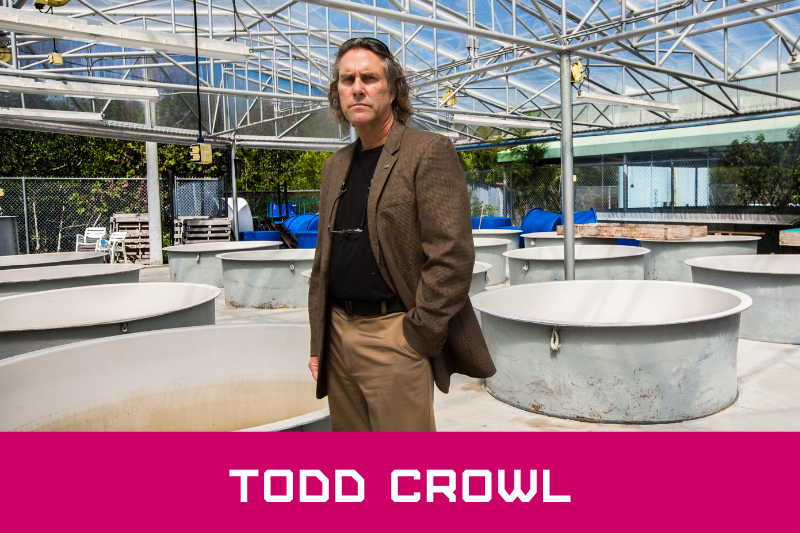
Dr. Crowl is an internationally recognized researcher in the fields of ecology, urban stream ecology and aquatic ecosystems, who has presented solutions about environmental threats to the White House. He is principal investigator on an NSF-funded project (CREST CAChE) focused on aquatic chemistry and water contamination, and also serves as director of the FIU Institute of Environment.
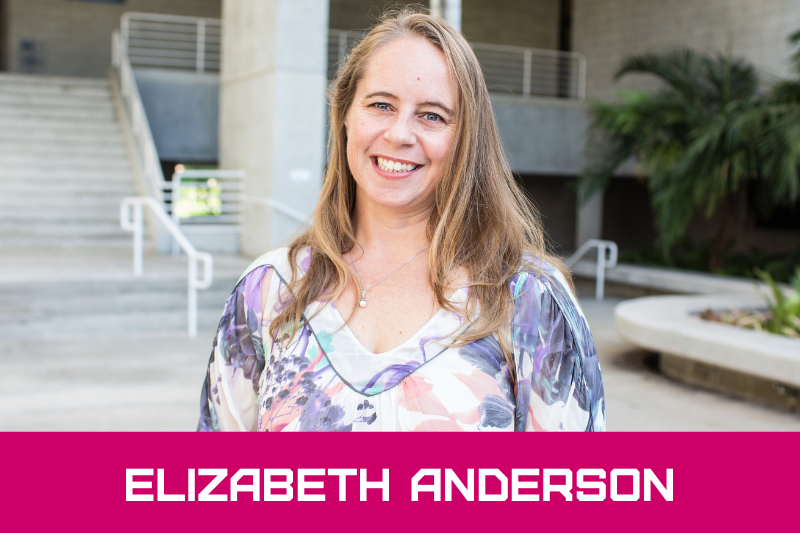
Dr. Anderson has spent her career studying the Amazon River. As principal investigator of several collaborative initiatives across South America, her work connects the people who live, work and rely on the Amazon to scientists, government authorities and local conservation partners.
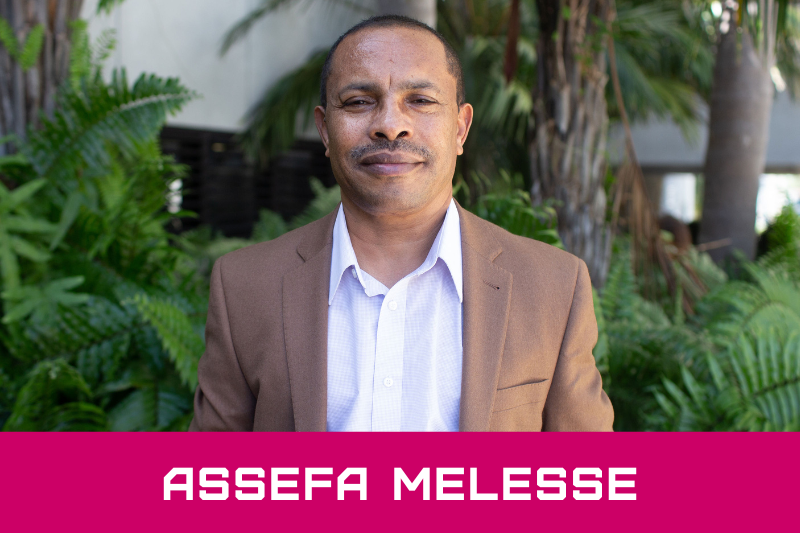
Dr. Melesse’s work is dedicated to safeguarding precious water resources, including the understudied upper Nile River. Specializing on hydrological modeling, he is one of the World’s Top 2 Percent of Scientists in the Alper-Doger Scientific Index Rankings for International Water Resources Engineering.
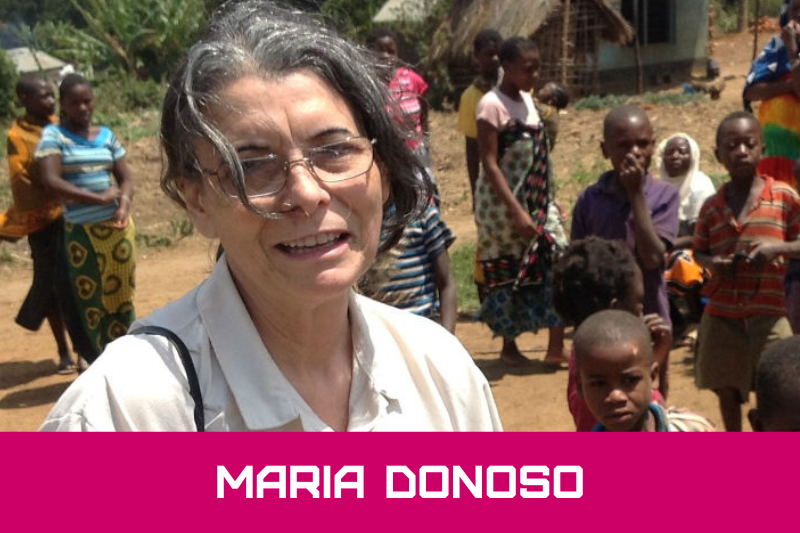
Dr. Donoso holds the UNESCO Chair on Sustainable Water Security at FIU and leads the Institute of Environment’s International Water Programs. Her work focuses on integrated water resources management. She also recently served as interim director for UNESCO’s Division of Water Sciences in Paris.
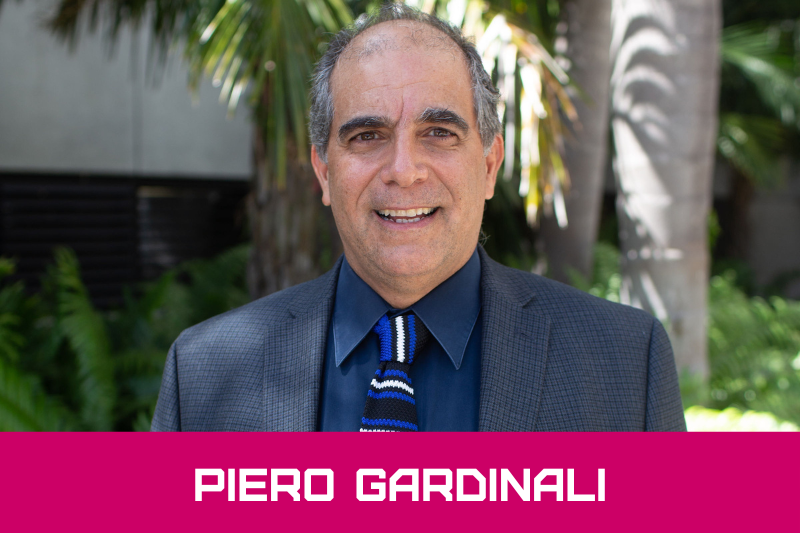
Dr. Gardinali is the associate director of the Institute of Environment and an expert in the fields of environmental chemistry, water quality monitoring and water sustainability, including identifying microplastics. He specializes in the detection of pollutants and contaminants in waterways.
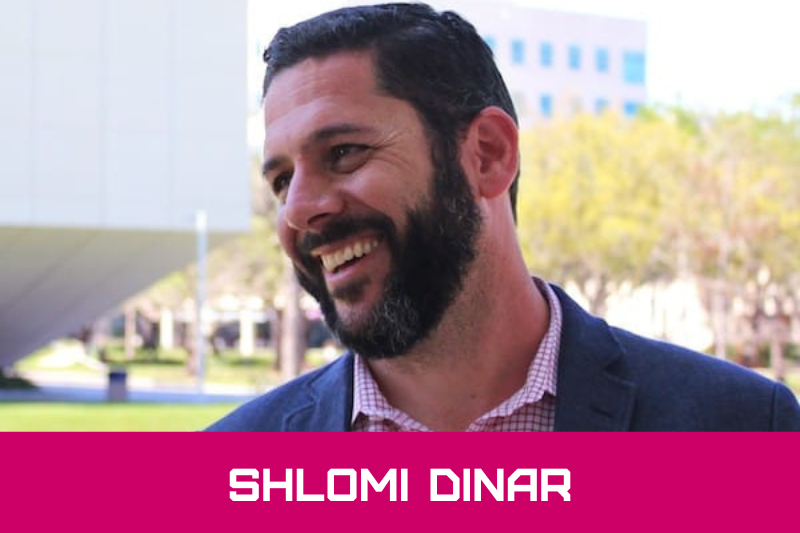
Dr. Dinar studies international environmental politics, security, and negotiation, including the conflict and cooperation over transboundary rivers. He also works on the linkages between climate change and international water issues.
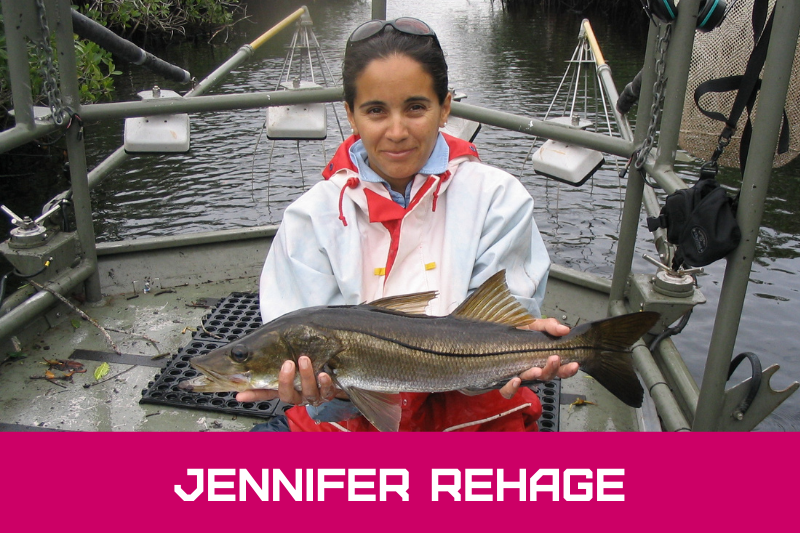
Dr. Rehage investigates the health of Florida’s recreational fish and fisheries studying how disturbances from natural causes, people and water management affect fish. She recently shocked the world when her research revealed South Florida’s bonefish are testing positive for prescription pharmaceuticals.

Dr. Price is a hydrogeologist using chemical tracers to track water flow and chemistry throughout the hydrologic cycle. She also investigates water-rock interactions in carbonate aquifers, seawater intrusion and sea level rise.
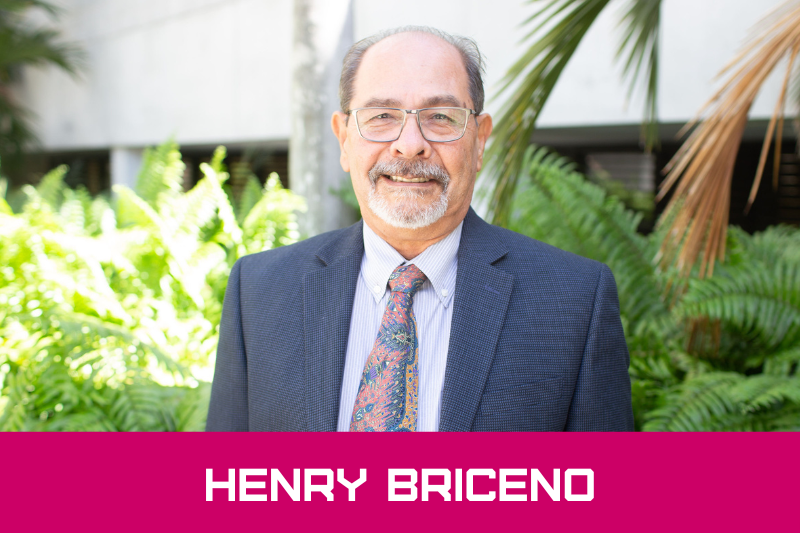
Dr. Briceño focuses on how our changing climate is impacting our waterways and the impacts that people and nature have on our ecological systems. He also leads the Institute of Environment’s Water Quality Monitoring Network.
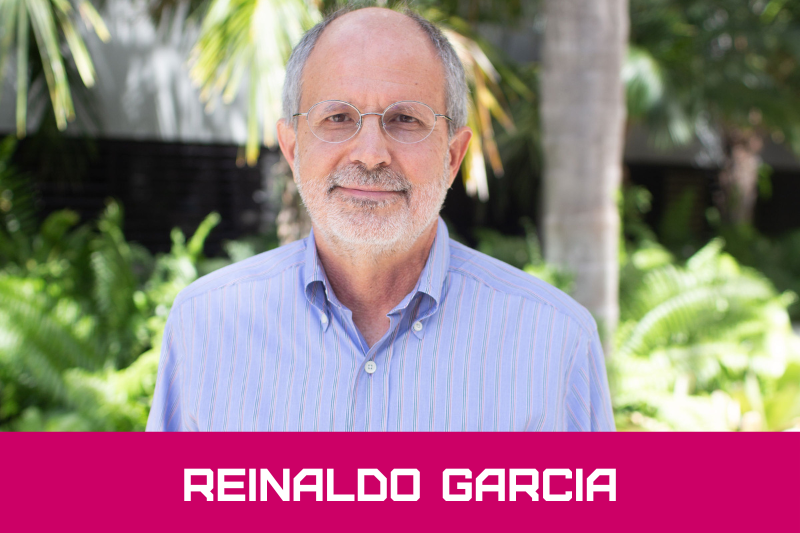
Dr. Garcia is a senior engineer and researcher modeling flow, sediment and pollutant transport. He has participated in hundreds of watershed, river, coastal, groundwater, and pollutant dispersion modeling studies worldwide.
News
 Science & Technology
Science & TechnologyNew York's Coopers Beach named America's best beach as 3 others stricken from top 10
May 22, 2025 Science & Technology
Science & TechnologyNot in the mood: Mercury messes with songbirds’ mating game
May 1, 2025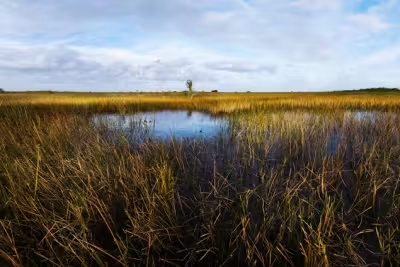 Science & Technology
Science & Technology25 years of Everglades restoration has improved drinking water for millions in Florida, but a new risk is rising
Apr 15, 2025 Community & Government Relations
Community & Government RelationsFrom the Florida swamps to the halls of Washington, D.C.: FIU convenes Everglades restoration scientists and environmental policymakers
Jan 6, 2025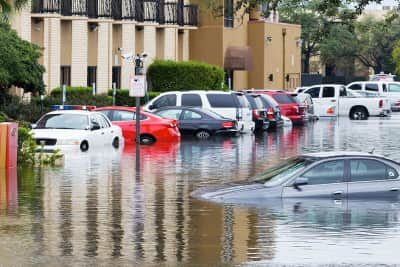 Business & Entrepreneurship
Business & EntrepreneurshipNew FIU-led coastal and inland flood loss model certified by the state
Dec 3, 2024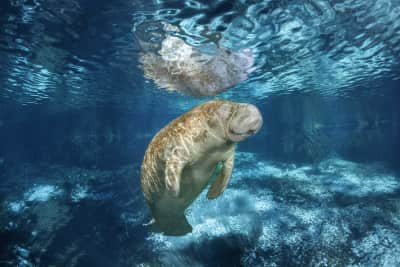 Science & Technology
Science & TechnologyUntreated sewage and fertilizer runoff threaten the Florida manatee’s main food source, contributing to malnutrition
Nov 14, 2024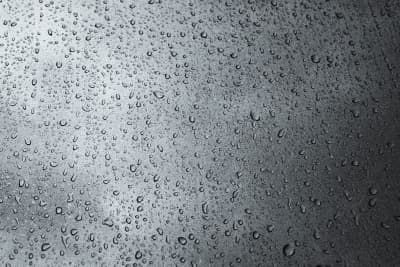 Science & Technology
Science & TechnologyIt’s literally raining “forever chemicals” in Miami
Nov 4, 2024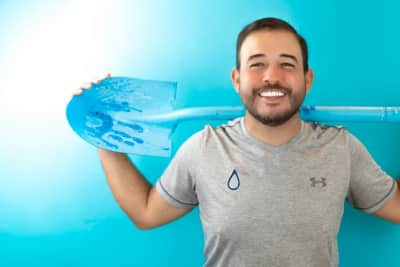 Business & Entrepreneurship
Business & EntrepreneurshipAlumnus leads nonprofit to ensure clean water access for communities in Latin America
Oct 7, 2024 Science & Technology
Science & TechnologyNew research initiative to aid in Biscayne Bay preservation
Jul 24, 2024